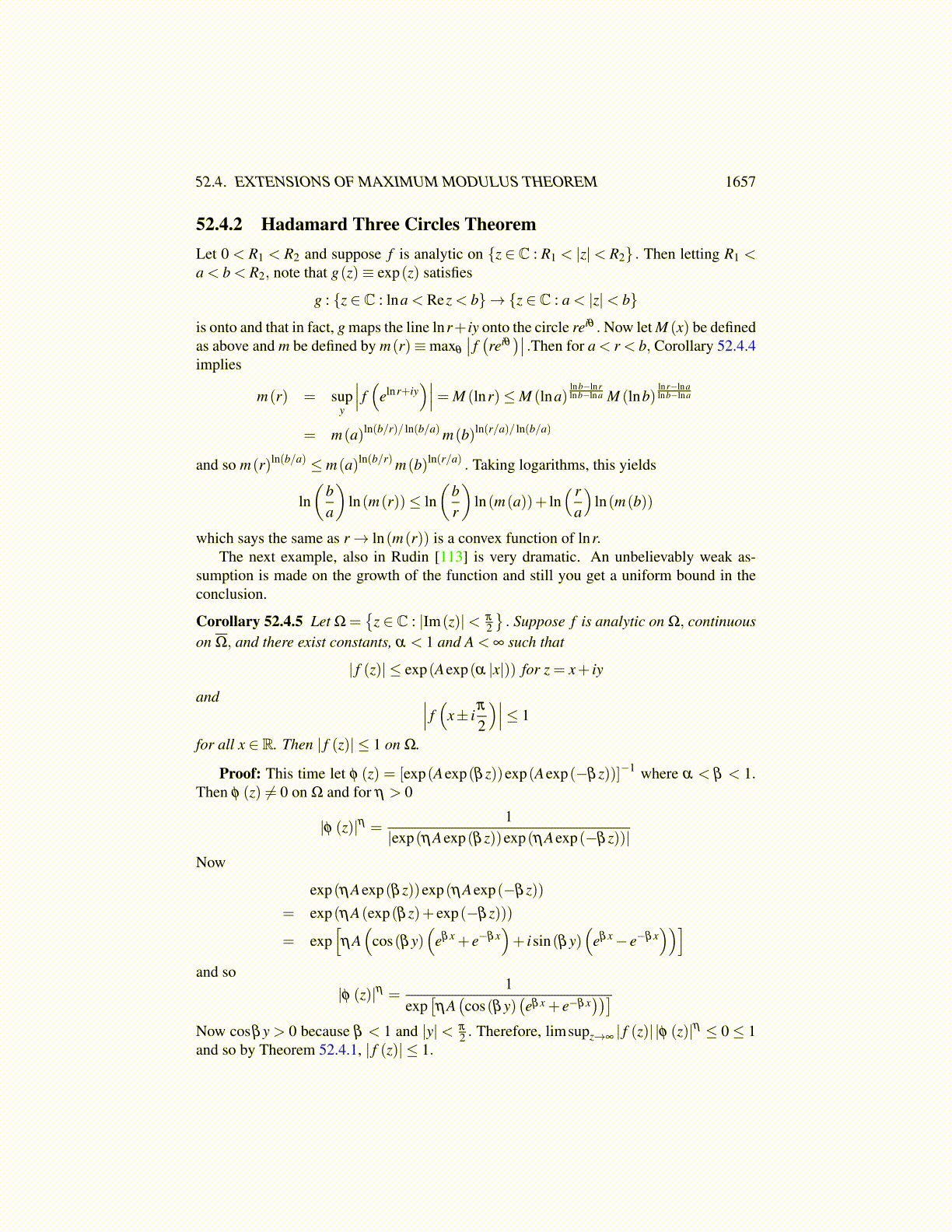
52.4. EXTENSIONS OF MAXIMUM MODULUS THEOREM 1657
while for a ∈ A,limsup
z→a|F (z)| ≤M.
Therefore, for α ∈ ∂∞Ω, limsupz→α |F (z)| ≤ max(M,Mη−η) and so by Theorem 52.3.5,
| f (z)| ≤(
mη
|φ(z)|η)
max(M,Mη−η) . Now let η → 0 to obtain | f (z)| ≤M.
In applications, it is often the case that B = {∞}.Now here is an interesting case of this theorem. It involves a particular form for Ω, in
this case Ω ={
z ∈ C : |arg(z)|< π
2a
}where a≥ 1
2 .
Ω
Then ∂Ω equals the two slanted lines. Also on Ω you can define a logarithm, log(z) =ln |z|+ iarg(z) where arg(z) is the angle associated with z between −π and π. Therefore,if c is a real number you can define zc for such z in the usual way:
zc ≡ exp(c log(z)) = exp(c [ln |z|+ iarg(z)])= |z|c exp(icarg(z)) = |z|c (cos(carg(z))+ isin(carg(z))) .
If |c|< a, then |carg(z)|< π
2 and so cos(carg(z))> 0. Therefore, for such c,
|exp(−(zc))| = |exp(−|z|c (cos(carg(z))+ isin(carg(z))))|= |exp(−|z|c (cos(carg(z))))|
which is bounded since cos(carg(z))> 0.
Corollary 52.4.2 Let Ω ={
z ∈ C : |arg(z)|< π
2a
}where a≥ 1
2 and suppose f is analyticon Ω and satisfies limsupz→a | f (z)| ≤M on ∂Ω and suppose there are positive constants,P,b where b < a and
| f (z)| ≤ Pexp(|z|b)
for all |z| large enough. Then | f (z)| ≤M for all z ∈Ω.
Proof: Let b < c < a and let φ (z) ≡ exp(−(zc)) . Then as discussed above, φ (z) ̸= 0on Ω and |φ (z)| is bounded on Ω. Now
|φ (z)|η = |exp(−|z|c η (cos(carg(z))))|
lim supz→∞
| f (z)| |φ (z)|η ≤ lim supz→∞
Pexp(|z|b)
|exp(|z|c η (cos(carg(z))))|= 0≤M